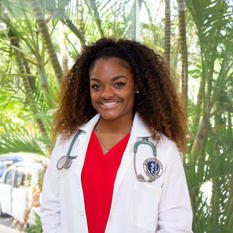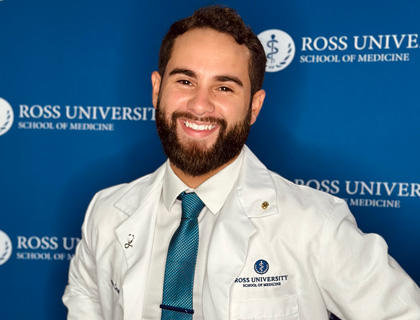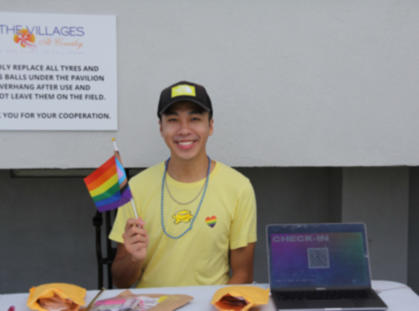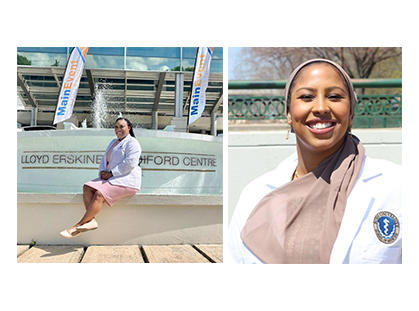Georgia native Asha Stegall grew up as one of a few Black girls at her high school, afforded privilege because of her promising athletic ability in track, basketball and volleyball. Quickly befriended by many, Asha became the class president and reigning homecoming queen. But the Ross University School of Medicine (RUSM) fourth-semester student always suspected that her fame and recognition didn’t come from a genuine place, tarnished by the community’s desire to create a poster child — a mark that followed her beyond 12th grade.
“I wasn’t discriminated against because I was a Black athlete. But my friends, who were Black but not athletes, weren’t allowed in the same bars. That’s when I realized what was going on. It’s simple — if you can’t accept them, you can’t have me.” Asha serves as RUSM’s welcome committee leader, student ambassador, student government association (SGA) president and, most recently, Diversity and Inclusion Taskforce member. “When you see something wrong, you need to say something and do something. It’s not my job to make the change; white people need to stand up and not be ok with that.”
Asha stopped patronizing any establishment that didn’t accept Blacks unconditionally. And while she still struggled with discrimination from time to time, the George Floyd incident triggered suppressed memories that were better left in the past. “It sparked tension and altercations with me. But this was bigger than my feelings because it affected the student body. As president, I had to intervene with understanding while advocating for the masses. We are adamant about social justice.”
Looking Beyond the Differences
Her leadership in SGA and on the taskforce has provided Asha a platform to fight for all those whose voices aren’t heard. “We’re pursuing careers where the color of our skin, our orientation and our culture should not matter when providing care. Medicine is about the impact you have on someone’s life. We have to come together because it’s difficult to change people’s minds and hearts.”
As a taskforce member, Asha supports the creation of a diversity and inclusion department to serve as a haven and resource for minorities. She also promotes a curriculum change that focuses on care for minorities. “Most norms in medicine are centered around the average white male. A wound on a Black person’s body may become a black mark because of the darker skin. As future doctors, we need to be aware of these differences because they’re important for the diagnosis.”
Asha plans to specialize in sports medicine, perhaps as an orthopedic surgeon for injured athletes. “They allowed me to have opportunities that no other school did,” Asha said about why she enrolled at RUSM after earning a bachelor’s and master’s degree. “I didn’t expect the process to be perfect, and I’ve never cried or worked so hard for a degree. It’s challenging and there are obstacles that keep getting in the way. But I’m going to keep sparking change because Ross University believed in me. And because of that, I get to one day live out my dream of being a doctor.”
RUSM Diversity and Inclusion Taskforce
A group of 16 RUSM students, faculty, colleagues and alumni have begun leading a holistic review of diversity, equity and inclusion at the University and will deliver a report of short- and long-term recommendations within the next few months. This is the first of many steps to sustain change at the infrastructure level.
As RUSM prepares to engage, train, educate, advocate and invest in this process to align with the Black community at our University and in all the underrepresented and marginalized communities in which we serve, we invite others to share feedback with us because we know the fight for social justice is a community collaboration.




